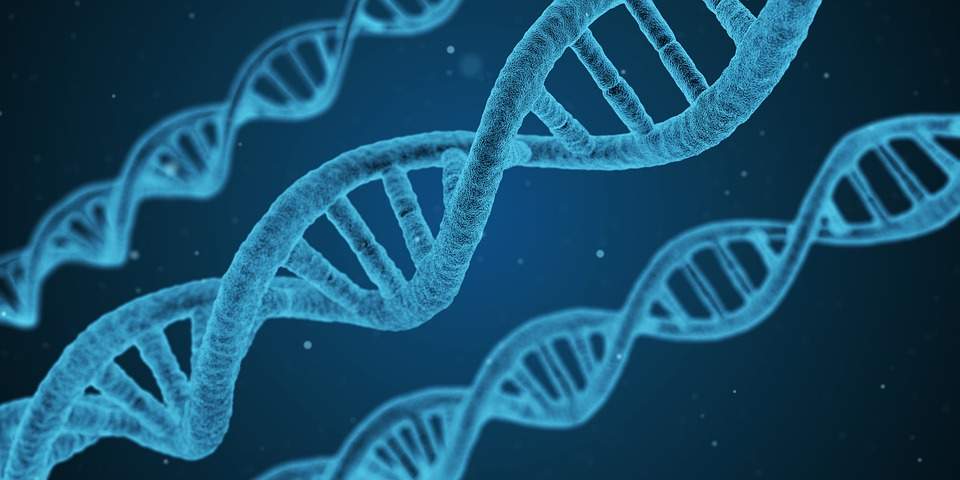
Science is approaching a moment of choice in the field of genetics, but as ever technical development must be squared with ethics, writes Rasika Sittamparam
You only have to survey history to discover that human beings are obsessed with physical perfection.
Since time immemorial, whatever civilization you look at, those with the opportunity have done their best to achieve that exemplary look: one thinks of ancient China’s excruciating foot-binding practice or the Egyptian infatuation with beauty treatments. In our own time, there is, of course, a widespread penchant for Botox – not to mention Gwyneth Paltrow’s eyebrow-raising advice on Goop.
That’s a wish which science has been happy to help advance. Since Watson and Crick’s discovery of DNA, genetic engineers have been striving to edit the human blueprint.
Those endeavours have recently produced a remarkable discovery: meet CRISPR-Cas9, the brainchild of Berkeley professor Jennifer Duodna, an enzyme hailed as ‘revolutionary’ by the scientific community. Research shows that this biological catalyst can be used as a tool to effectively clip and replace sections of human DNA.
The scientific community is still coming to terms with the possibilities of this discovery. The first aim for CRISPR proponents was to eradicate disease-causing genes, but human vanity cannot be so easily set aside: it is also quite possible that the enzyme could be put to cosmetic use, and even create designer babies.
Of course, in this hypothetical future of on-tap beauty, you’d have to pay for it. But that’s in fact something many HNWs have been happy to do in the past. For instance, before the advent of CRISPR, IVF technology provided a selection of embryos for parents to choose from – complete with a cocktail of active and passive disease-causing genes.
Debates over the ethics of IVF had hardly subsided when the arguably still-more controversial CRISPR emerged. CRISPR is potentially a precise tool, which could not only remove bits of faulty DNA, but also replace them with genetic bolt-ons. While removing disease-causing genes, why not insert some desirable traits into the mix? Mightn’t it not be tempting to remove that too-large chin, or reduce those alarming ears – just ask science nicely, and science will oblige.
But for many this prospect is scarily reminiscent of Second World War eugenics. Wouldn’t this new generation of CRISPR babies, have more than a passing affinity with the Nietzschean idea of the ‘Übermensch’? And remember, this new brand of human would be not just beautiful but also rich – because the rich would be most able to afford CRISPR technology. The idea also creates associations with Brave New World – a beautiful, privileged 0.1 per cent, lording it over the rest of us in all their staggering genetically modified loveliness.
Although the global medical community has been wary of manicuring human embryos thus far, China is already showing a willingness to proceed with clinical trials in this field. For instance, it recently pioneered the injection of CRISPR-modified genes into a lung cancer-sufferer, triggering a bio-race between China and the US. To this geopolitical mix, one might add the typical Russian billionaire’s obsession with cryonics. It isn’t hard to imagine CRISPR becoming popular with our billionaire class.
But as attractive as CRISPR will no doubt be to some, fears remain. A recent study has found that the editing process has caused a barrage of unintended mutations, causing investors to panic and stock values to dip by as much as 15 per cent in some biotech firms which had invested in CRISPR. The inner workings of DNA remain complex, and the current state of scientific knowledge is imperfect. It is impossible to point to one gene that causes an identifiable reaction in cells which can in turn account for the emergence of specific traits. Genetics is stubbornly complex: genes appear to operate by a domino effect whereby a section of DNA might at any one time trigger a web of interlinked molecular mechanisms – and it’s these, rather than any one discernible cause, that result eventually in physical characteristics.
For some, these difficulties will open up moral questions, too. The human race appears to prosper by variety – much of its creativity arises from flaw. Can our evident desire for perfection be squared with our humanity? And might not a fault-free human race approach banality? It is hard to imagine that had Stephen Hawking or Ludwig von Beethoven remained physically healthy, they would have achieved such heights in their respective fields.
Human history has been driven on from society to society, and from people to people, by a desire for a better future: our endeavours are built on the consciousness that the world needs improvement. And while everyone has a right to dream on utopias, it is also important to be sceptical, as our technology becomes more and more powerful, and capable of such extraordinary changes.
Rasika Sittamparam is a science & tech writer and researcher at Spear’s






